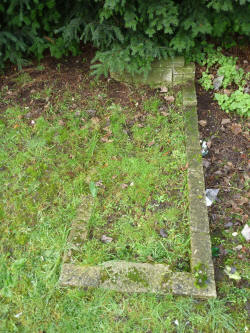|
|
|
|
Humbert Wolfe
(1885-1940)
|
| Humbert Wolfe is buried in Kensal
Green Cemetery, London, England. (Also buried here are
Thomas Hood and
James Leigh Hunt.) |

Humbert Wolfe
|

Grave of Humbert Wolfe ©
Anthony Padgett
|
Wolfe was the best selling poet of the 1920s and 30s and
was in the running for Poet Laureate in 1931. He was
practically a household name in the last 15 years of his
life. He published over 40 books of his own poetry and
prose, 10 books of literary criticism, and numerous
anthologies and literary translations.
Stephen Fry
described Wolfe's poetry as `one of England's forgotten
splendours', said: `He has long and wrongly been forgotten,
and it is impossible to see why.' Republishing Wolfe's
poetry would allow a new generation to `discover for
themselves a writer of wit, warmth, satirical genius,
blissful eccentricity and charm', he added. – from The
Guardian 7.4.1999.
In the First World War Wolfe
was responsible in Whitehall for the organisation of the
supply and regulation of labour in the Ministry of Munitions
in the First World War. Without his efforts in determining
the new logistics of war the British troops would have been
inadequately equipped.
Wolfe was a pupil at Bradford
Grammar School, then Oxford Wadham College where he gained a
1st, then rose to a high position in the Civil Service at
Whitehall, with the Board of Trade and the Ministry of
Labour. Humbert became CBE in 1918 and CB in 1925 and also
became the British representative on the International
Labour Organisation. From 1935-40 he was also the 1st
president of the Society of Civil Service Authors.
He
began publishing poetry in the 1920s to great acclaim. His
poems, e.g.Requiem: The Soldier (1916), are read at
Remembrance Sunday events and the first half of this poem
was the epigraph to Captain Corelli's Mandolin by
Louis de Bernieres. Wolfe's verses were also set to music by
a number of composers, including Gustav Holst in his 12
Humbert Wolfe Settings, Op. 48 (1929).
In 1931
he became a Fellow of Royal Society of Literature and was
one of the favourites to become the Poet Laureate against
Rudyard Kipling,
Edith Sitwell,
W.B.Yeats and others. His work was
put in the same anthologies as Siegfried Sassoon, P.G.
Woodhouse, T.S. Eliot, Thomas Hardy, Walter de la Mare,
G.K.Chesterton,
In 1938 Humbert was appointed Deputy
Secretary to the Ministry of Labour and he was responsible
for equipping the country’s labour force for war. On the
outbreak of the Second World War Wolfe was one of those
responsible for drawing up a list of writers who could
better serve as propagandists than in the British Army.
Humbert Wolfe died in 1940 without, as Philip Bagguley notes
in his biography, receiving the knighthood that was
confidently predicted for him.
(Text by Anthony
Padgett)
|
You cannot hope
to bribe or
twist,
thank God ! the
British journalist.
But,
seeing what
the man will do
unbribed, there's
No
occasion to.
The Uncelestial City
|
|
|
|







